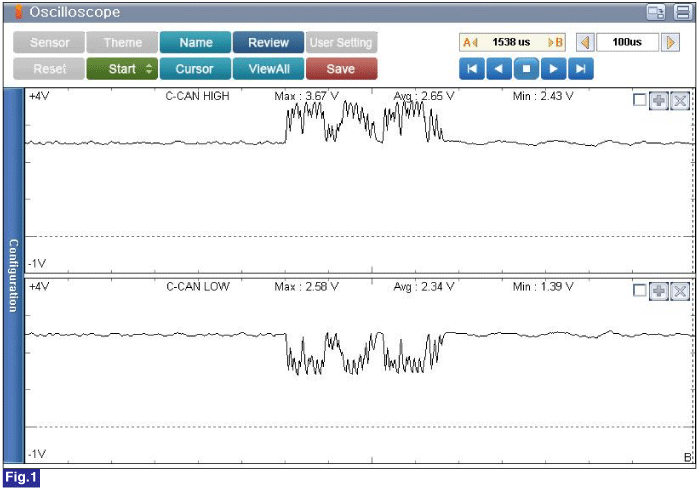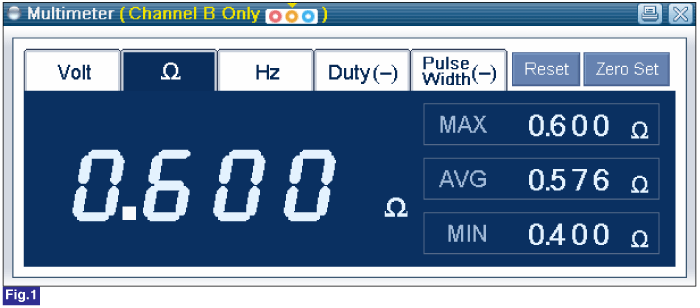Has a problem been found?
 | ▶ Repair as necessary and go to "Verification of Vehicle Repair" procedure. |
 | ▶ Go to "CAN Communication Line Inspection" procedure. |
Many malfunctions in the electrical system are caused by poor connection. Faults can also be caused by interference from other electrical systems, and mechanical or chemical damage.
Thoroughly check connectors for looseness, poor connection, bending, corrosion, contamination, deterioration, or damage.
Has a problem been found?
 | ▶ Repair as necessary and go to "Verification of Vehicle Repair" procedure. |
 | ▶ Go to "CAN Communication Line Inspection" procedure. |
Connect all control module connector.
Ignition "ON".
Make CAN communication wake up status.
Back probe and measure signal waveform of Pin No. 11(Low) terminal of Data Link Connector(DLC) and chassis ground with VMI.
Back probe and measure signal waveform of Pin No. 3(High) terminal of Data Link Connector(DLC) and chassis ground with VMI.

Fig.1) Normal C-CAN signal waveform
Are the measured signal waveforms OK?
 | ▶ Fault is intermittent caused by poor contact in the sensor’s and/or EPS ECU connector or was repaired and EPS ECU memory was not cleared. Thoroughly check connectors for looseness, poor connection, bending, corrosion, contamination, deterioration, or damage. Repair or replace as necessary and go to "Verification of Vehicle Repair" procedure. |
 | ▶ Go to "CAN communication circuit inspection (EPS ↔ ESC/ESP)" procedure. |
Ignition "OFF"
Disconnect EPS ECU connector and ESP Module harness connector.
Measure resistance between Pin No. 8 (Low) terminal of EPS ECU harness connector and Pin No. 14 (Low) terminal of ESP Module harness connector.
Measure resistance between Pin No. 7 (High) terminal of EPS ECU harness connector and Pin No. 26 (High) terminal of ESP Module harness connector.
Specification : Approx. 1Ω below

Fig.1) GDS Multimeter resistance check
Is the measured resistance within specifications?
 | ▶ Go to "Component Inspection" procedure. |
 | ▶ If the measured value is ∞Ω, repair or replace the open in CAN High/CAN Low circuit. And then, go to "Verification of Vehicle Repair" procedure. |